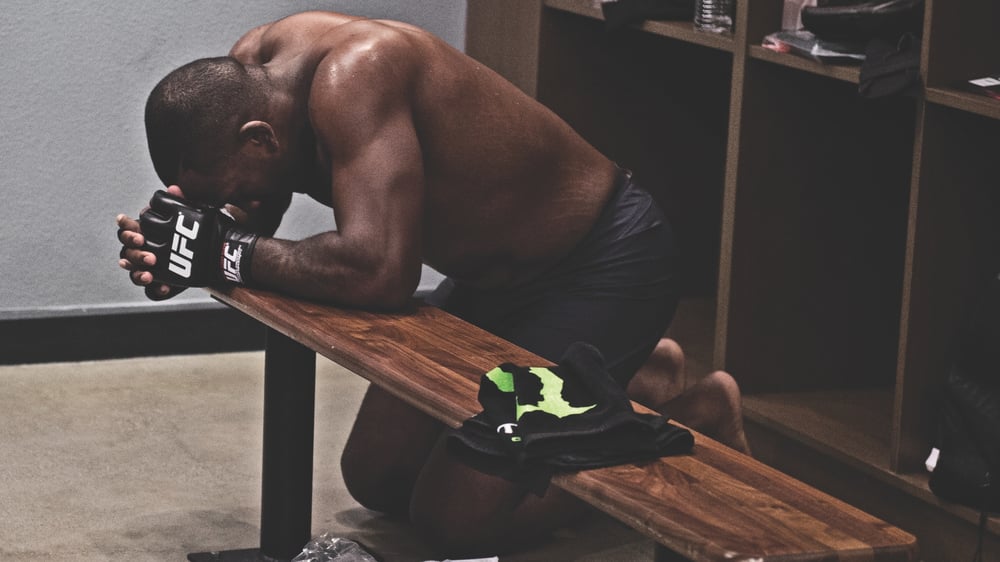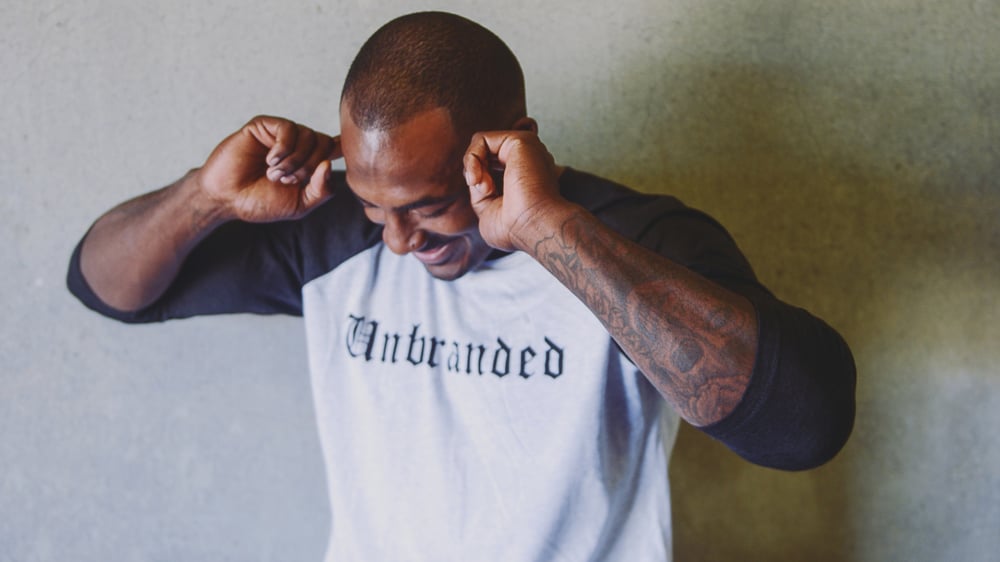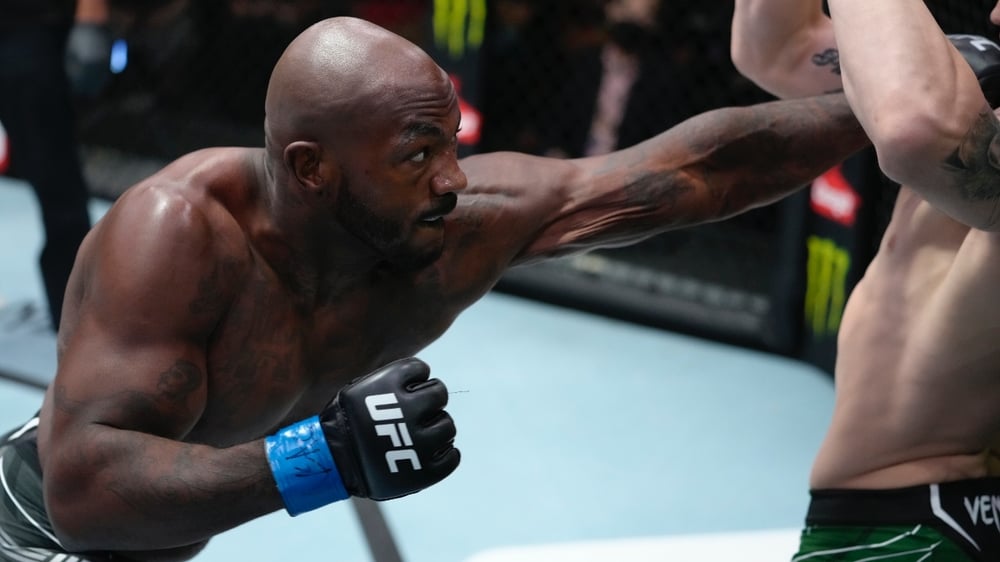
Issue 196
October 2022
“Twelve years I've been fighting. I don't want to wait until I'm a champion to be able to tell my story. Being a 300-pound kid on the brink of suicide, burdened by depression, not knowing what to do in my life, I just want to be able to share that and really, like, inspire people that feel just like I do. Because maybe those are some lives that I can change. And so, when I come in here, that's my focus. I want to be able to tell a story with my life.”
There are so many UFC fights each year, and a near-constant weekly schedule of fights. It means that fighters and their stories can easily go under the radar, and people with inspirational tales to tell can sometimes get lost in the shuffle. The above quote, from UFC light heavyweight Khalil Rountree, was a watershed moment for the Las Vegas light heavyweight as he decided that he didn’t just want to fight, he wanted to share his story along the way.
Rountree’s path to the Octagon is a tale of tragedy, discovery, and a determination to bounce back from adversity as he battled trauma and depression to become an inspirational figure in the UFC. His journey is far from complete, but Rountree opened up as he shared his story so far in a special feature with UFC Connected.
“I grew up in Las Vegas, Nevada. And I actually feel like it's pretty rare because I never really heard of many people coming from this place,” he began.
“So I'm really happy to be showing people, you know, what it's like to come from here.
“Growing up, there are a lot of obstacles that we had to overcome as a family. My mom and dad together had a really good plan for a future together. And my dad was working to make that happen.”

Family tragedy
Rountree’s father worked as a road manager for R&B band Boyz II Men, and traveled the country with the band as they toured. It meant he was away from home for long spells. And, in 1992, one such trip turned to tragedy.
“My dad always liked to wear jewelry, and he was just a really clean-cut guy. And he was a big guy, I think he was six-five, 320 (pounds). Just jacked. And on one of the shows that they had in Chicago in 1992, there was a disturbance from some guys that he didn't know. Turns out that they were actually there to rob him. One of the guys had a firearm (and) shot him in the head while he was defending himself against two guys. When my dad passed, I was only two.”
Rountree’s father’s connection to the music business inspired Khalil to pursue his own interest in music, and as a youngster, he immersed himself in learning how to play an array of different musical instruments.
“I think because of who my father was, I just had this connection to music,” he said.
“Whether it was on my birthday, or Christmas, or anytime there was extra money, I would ask my mom for a new instrument. Once I figured that I could make my own music, then (it was) a snowball effect from there. When I was in elementary school is when I first started to freely explore my own musical interests. And I have some of my earliest happy, and dramatic, moments in elementary school.”
Dark times
Sadly for Rountree, not everyone at his school shared his deep love for music, and his passion drew negative responses from some of his fellow students.
“I remember one day, I wore an NSYNC t-shirt. And some kids made fun of me for wearing it and they were just like laughing at me. I think that's when I started to kind of feel different and like, ‘Why are people making fun of me? I'm not doing anything wrong.’
“In front of the school, I just like flipped my shirt inside out and sat there, just so sad. I didn't really know how to react. I didn't know how to fight back. I just took it in.”
That marked the beginning of a phase in Rountree’s early life when he struggled to fit in. Instead of making friends and finding his way, he withdrew into himself.
“At an early age I just started to look at things differently and almost wanted to disconnect from the world,” he recalled.
“High school was one of the toughest times and eras of my life. Popularity was more important, what clothes you had, and I didn't fit any of those boxes. I wore all-black clothing, painted my nails black, probably had black eyeliner, I had two lip rings, my ears were stretched out with plugs. I was just like a walking billboard of like, ‘Stay the hell away from me.’
“I was way too shy and just internally scarred from being bullied. And towards the end of high school, I started smoking and just eating unhealthy. I got myself up to 305 pounds at 19 years old. And that drove my mental health down too, because I didn't feel good about myself. That's when I just I started experimenting with drinking at a really early age. It was a pretty bad time.”

Finding his escape
Rountree’s mental wellbeing and physical health were on the decline, and he recalled the moment when he realized he needed to urgently make big changes to turn his life around.
“My health was going down. And there was a night my heart felt like it was going to stop, and it scared me,” he said.
“Something snapped in my mind. I was like, ‘OK, I have to do something differently.’ I couldn't live the same way that I was living anymore.”
Thankfully, inspiration wasn’t too far away, as he discovered mixed martial arts and had an epiphany.
“My brother was a fan of MMA. And from the moment I saw Rampage Jackson tear a door off of the wall on The Ultimate Fighter, I was like, ‘This has to be for me. Tell me what I got to do to be like that guy.’
“About three months into training, I told my coach, ‘I think I can do this and I want you to sign me up.’ He's like, ‘You need to lose 100 pounds. 205 instead of 305.’ So that became my next addiction. I was like, ‘OK, how am I gonna get all this weight off?’”
Rountree dedicated himself to training, losing weight and building his skillset. Then, in March 2011, he stepped into the cage for his first amateur fight for Las Vegas promotion Tuff-N-Uff.
“My first fight, it was the most pressure that I have ever felt in my life. But I went out there and I won the fight and everybody was cheering and I was like, ‘Whoa!’ It was just a completely different experience than what I was used to. I just knew that I wanted to do it again.”
Rountree compiled a 5-1 amateur record, then turned pro in 2014. He raced to 3-0, then faced Justin Polendey at RFA 33 in a bout that, if successful, could earn him a spot on The Ultimate Fighter.

Hitting the big time
“Everything that I wanted, which was to be in the UFC, even though I’d only had three professional fights, it was all riding on that fight. I went out and tried to end the fight early. The guy clipped me and I fell. And before the second round, I won by knockout. We woke up the next day, drove back to Vegas, had one sleep, and then The Ultimate Fighter tryouts.
“The Ultimate Fighter was one of my favorite experiences I've ever had. Every day was about training. There was nothing bigger than me wanting to get that UFC contract and start to make a difference for my family.”
Competing on the team coached by UFC women’s strawweight champion Joanna Jedrejczyk, Rountree lost his elimination round bout with Cory Hendricks via first-round submission, but was given a second shot at the tournament after Hendricks was ruled out due a neck injury. Rountree didn’t waste his opportunity, as he TKO’d Josh Stansbury in the first round to earn a spot in the light heavyweight final, where he battled to the scorecards in a losing effort against Andrew Sanchez. Despite that loss, Rountree’s determination and improvement over the season was enough to earn him a UFC deal.

Leaving a legacy
Now Rountree is looking to stack wins and climb the UFC’s light heavyweight rankings as he looks to take his skills all the way to the top of the division. But, as he explained, winning the title isn’t his only metric of success.
“Success in the UFC to me feels like getting messages from fans saying, ‘Thank you for sharing where you come from. Because that's made me lose weight or start MMA.’ To me that's what success feels like. It's to be happy to know that what I've done made a difference for others,” he said.
“I do believe that it would be amazing to be the UFC light heavyweight champion and have this belt. But that's not the most important thing to me in life. As long as I'm putting out good stuff in the world, then I'm OK.”
“I want to continue (my father’s) legacy and live my life in a way that he would be proud of.”
...









